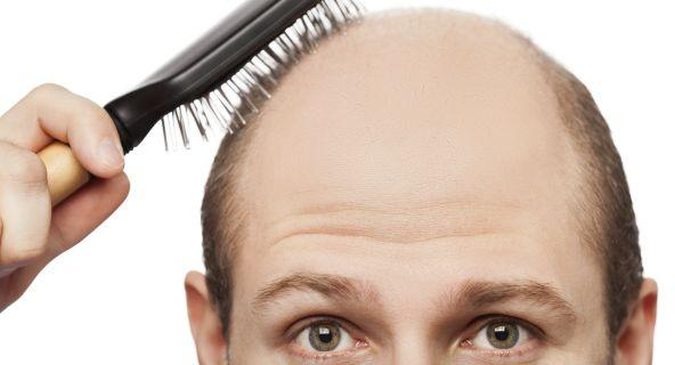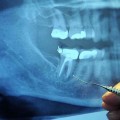You have been losing hair for a while now and you finally decide that you want to go in for a hair transplant because you are not liking what you see when you look in the mirror. You do a fair bit of research and choose a hair transplant surgeon; you spend the money and the time that is needed for a hair transplant. You are told that the results will start to become visible within a few months, but now almost six months down the line, you cannot see any hair. That is when you realize that your hair transplant has not turned out the way you wanted it to.

For every hundred hair transplant procedures that are done, there is a handful that does not go well and there is normally a reason for the transplant not working out. The reasons could vary from the inexperience of the transplant surgeon to you not being an ideal candidate in the first place.
Here are some of the main reasons that could lead to a failed hair transplant:
- When you are not an ideal candidate – Just because you are losing hair and have bald patches on your head, does not mean that you are an ideal candidate for a hair transplant. Before you can head for a transplant, you need to make sure that you find out whether you are an eligible candidate or not. A good transplant surgeon will spend a lot of time, investigating your hair and scalp, trying to figure out whether your hair loss has stabilized, whether you have a proper donor and recipient area and of course, whether you are an ideal candidate for a transplant. A good doctor will be able to tell you whether your hair loss has stabilized enough for a transplant. When the hair transplant is done at the wrong stage, the chances of it failing are much higher. Similarly, if you have insufficient donor hair, time needs to be taken to assess where hair can be taken from. In addition, if the hair from the donor area is not strong enough, harvesting and transplanting them will be of no use. In situations where there is not enough hair in the donor area, harvesting the remaining hair will lead to bigger problems because this will lead to bald spots or severe thinning in the donor area too. Most importantly, if the hair loss is not permanent and has been caused due to medical conditions or stress, then a hair transplant is not required at all, but if one is done, it is bound to be a failure. This is why a proper examination before even considering a transplant is crucial.
- When the surgeon is not experienced enough – This is perhaps one of the biggest reasons for failed hair transplants – when the surgeon does not know what he or she is doing, then there is no doubt that the procedure will not go well. When they say that practice makes perfect, there is no denying the same – young and inexperienced doctors should spend several hours practicing under an experienced surgeon, perfecting and honing their skills, before venturing out on completing procedures on their own. Let’s say you are going to a transplant surgeon who is still reasonably green, he or she will not know how to do the all-important examination properly. They will not know how to gauge the donor and recipient areas properly, they might not even know how to get a proper estimate of how many grafts will be needed and how to ensure which the healthiest grafts are. The procedure of extracting grafts is quite a precise one, which is why it needs to be done with the greatest accuracy. One wrong move and you could be destroying the prospective grafts. Once the grafts have been extracted, it is just as important to keep them safe and protected until they are implanted back. Only an experienced doctor will know what to do in case there is not sufficient hair in the donor area – in such scenarios, there can be extraction from other parts of the body such as chest and beard; however, only an experienced doctor will know how to extract this hair. An inexperienced doctor will also not know how to create a natural looking hairline, making your transplant a very obvious one.
- When the postoperative care has not been done properly – Post-op care after hair transplant surgery is perhaps the most important aspect of the procedure and the reason for the failure of the transplant is often not doing the same. When the doctor is giving you a set of instructions to follow post the surgery, it is imperative that you follow each and every one of them. If you have been told not to wash your hair, don’t; if you have been told not to scratch the surgical site, don’t; if you have been asked not to pick the scabs, don’t! Many times, the reason for the transplant failing is just that the patient does not follow the postoperative care protocols that they have been given. Something as simple as scratching your head could be the difference between a good transplant and a failed one. If you are not maintaining proper hygiene on your scalp (such as not washing in the manner mentioned or not drying the area with care), you could end up with a nasty infection that could lead to serious problems.
- When the grafts are the root of the problem – Another common reason for hair transplants failing is when the grafts are not taken proper care of. The first step is that the correct donor grafts need to be extracted because only the correct donor grafts will be able to take hold. When the grafts are extracted, they need to be either implanted immediately, or they need to be stored with care until the time they are implanted. It is just as important to ensure that the grafts are placed properly because they need to grow in tandem with the natural hair.
It is important to understand that the success or failure of a transplant is pretty much in human hands – proper care on the part of the surgeon and the patient can ensure a great head of hair!


 (9 votes, average: 4.11 out of 5)
(9 votes, average: 4.11 out of 5)









